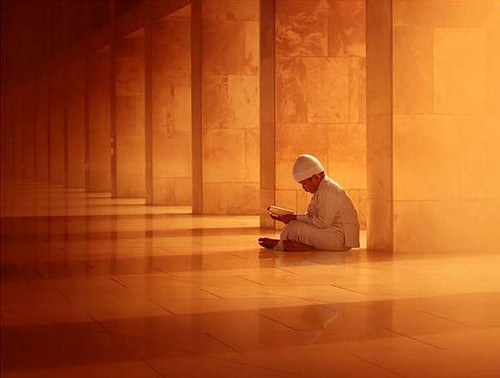To continue our #ANTHROISLAM week, today we offer you a list of classic reading – classic not necessarily as in ‘old’ but as in important. Stay tuned for a recent publications list coming soon, with other #ANTHROISLAM excitement still before that!
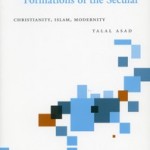 Formations of the Secular: Christianity, Islam, Modernity. Talal Asad. (Stanford University Press 2003)
Formations of the Secular: Christianity, Islam, Modernity. Talal Asad. (Stanford University Press 2003)
Opening with the provocative query “what might an anthropology of the secular look like?” this book explores the concepts, practices, and political formations of secularism, with emphasis on the major historical shifts that have shaped secular sensibilities and attitudes in the modern West and the Middle East. Talal Asad proceeds to dismantle commonly held assumptions about the secular and the terrain it allegedly covers. He argues that while anthropologists have oriented themselves to the study of the “strangeness of the non-European world” and to what are seen as non-rational dimensions of social life (things like myth, taboo, and religion),the modern and the secular have not been adequately examined.
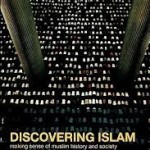 Discovering Islam: Making Sense of Muslim History and Society. Akbar S. Ahmed. (Routledge 2002)
Discovering Islam: Making Sense of Muslim History and Society. Akbar S. Ahmed. (Routledge 2002)
Now reissued with a new introduction, Discovering Islam is a classic account of how the history of Islam and its relations with the West have shaped Islamic society today. Islam is often caricatured as aggressive and fanatic. Written in the tradition of Ibn Khaldun, this readable and wide-ranging book balances that image, uncovers the roots of Islamic discontent and celebrates the sources of its strength. From the four “ideal Caliphs” who succeeded the Prophet to the refugee camps of Peshawar, an objective picture emerges of the main features of Muslim history and the compulsions of Muslim society.
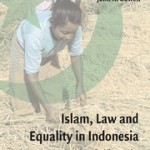 Islam, Law, and Equality in Indonesia: An Anthropology of Public Reasoning. John R. Bowen. (Cambridge University Press 2003)
Islam, Law, and Equality in Indonesia: An Anthropology of Public Reasoning. John R. Bowen. (Cambridge University Press 2003)
In Indonesia, the world’s largest Muslim-majority country, Muslims struggle to reconcile radically different sets of social norms and laws, including those derived from Islam, local social norms, and contemporary ideas about gender equality and rule of law. In this 2003 study, John Bowen explores this struggle, through archival and ethnographic research in villages and courtrooms of the Aceh Province, Sumatra, and through interviews with national religious and legal figures. He analyses the social frameworks for disputes about land, inheritance, marriage, divorce, Islamic History and, more broadly, about the relationships between the state and Islam, and between Muslims and non-Muslims.
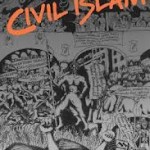 Civil Islam: Muslims and Democratization in Indonesia. Robert W. Hefner. (Princeton University Press 2000)
Civil Islam: Muslims and Democratization in Indonesia. Robert W. Hefner. (Princeton University Press 2000)
Challenging stereotypes of Islam as antagonistic to democracy, this study of courage and reformation in the face of state terror suggests possibilities for democracy in the Muslim world and beyond. Democratic in the early 1950s and with rich precedents for tolerance and civility, Indonesia succumbed to violence. In 1965, Muslim parties were drawn into the slaughter of half a million communists. In the aftermath of this bloodshed, a “New Order” regime came to power, suppressing democratic forces and instituting dictatorial controls that held for decades. Yet from this maelstrom of violence, repressed by the state and denounced by conservative Muslims, an Islamic democracy movement emerged, strengthened, and played a central role in the 1998 overthrow of the Soeharto regime. In 1999, Muslim leader Abdurrahman Wahid was elected President of a reformist, civilian government.
 Islam Obscured: The Rhetoric of Anthropological Representation. Daniel Varisco. (Palgrave MacMillan 2005)
Islam Obscured: The Rhetoric of Anthropological Representation. Daniel Varisco. (Palgrave MacMillan 2005)
Islam Obscured analyzes four seminal anthropology texts on Muslims that have been read widely outside the discipline. Two are by distinguished anthropologists: Islam Observed (Clifford Geertz, 1968) and Muslim Society (Ernest Gellner, 1981). Two other texts are by Muslim scholars: Beyond the Veil (Fatima Mernissi, 1975) and Discovering Islam (Akbar Ahmed, 1988). Varisco argues that each of these approaches Islam as an essentialized organic unity rather than letting “islams” found in the field speak to the diversity of practice. He sheds light on Islam as a cultural phenomenon, representation of the other, Muslim gender roles, politics of ethnographic authority, and Orientalist discourse. Varisco’s analysis goes beyond the rhetoric over what Islam is, focusing instead on ethnographic research about what Muslims say they do and actually are observed doing.
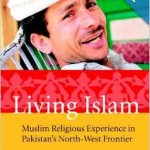 Living Islam: Muslim Religious Experience in Pakistan’s North-West Frontier. Magnus Marsden. (Cambridge University Press 2005)
Living Islam: Muslim Religious Experience in Pakistan’s North-West Frontier. Magnus Marsden. (Cambridge University Press 2005)
Popular representations of Pakistan’s North West Frontier have long featured simplistic images of tribal blood feuds, fanatical religion, and the seclusion of women. The rise to power of the radical Taliban regime in neighbouring Afghanistan enhanced the region’s reputation as a place of anti-Western militancy. Magnus Marsden is an anthropologist who has immersed himself in the lives of the Frontier’s villagers for more than ten years. His evocative study of the Chitral region challenges all these stereotypes. Through an exploration of the everyday experiences of both men and women, he shows that the life of a good Muslim in Chitral is above all a mindful life, enhanced by the creative force of poetry, dancing and critical debate. Challenging much that has been assumed about the Muslim world, this 2005 study makes a powerful contribution to the understanding of religion and politics both within and beyond the Muslim societies of southern Asia.
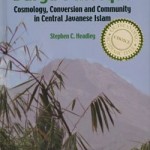 Durga’s Mosque: Cosmology, Conversion and Community in Central Javanese Islam. Stephen Cavana Headley. (Institute of Southeast Asian Studies Publishing 2004)
Durga’s Mosque: Cosmology, Conversion and Community in Central Javanese Islam. Stephen Cavana Headley. (Institute of Southeast Asian Studies Publishing 2004)
In his analysis of the Durga ritual complex in Central Java, Headley sheds light on one of the most unusual court traditions to have survived in an era of deepening Islamization. Headley’s analysis of this ritual complex, and its implications for our understanding of popular Javanese religion, deserves to be read by all serious students of Java, as well as anyone interested in religion in Indonesia. However, Headley moves well beyond this unusual ritual complex, to take us through the twists and turns of religious culture and politics in what is one of the richest but also most troubled of cultural regions in Java. The result is a rich, multi-layered, and fascinating study, one that changes forever our understanding of Javanese tradition in a Java becoming Islamic.
As part of our first ever thematic week on the anthropology of Islam (#AnthroIslam), Allegra compiled for you you this list of classic books. A good way to start getting aquainted with the literature!
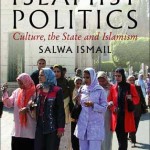 Rethinking Islamist Politics: Culture, the State and Islamism. Salwa Ismail. (I.B. Tauris 2003)
Rethinking Islamist Politics: Culture, the State and Islamism. Salwa Ismail. (I.B. Tauris 2003)
In an atmosphere of growing concern over the threat posed by Islamist violence, political Islamism has become the most important of geopolitical issues. In the process, it has been misrepresented. Contrary to what many believe, Islamist movements are characterised by their diversity. The phenomenon of political Islam is determined by macro and micro-level changes in the Muslim world, such as the retreat of the welfare state across the Middle East, and the subsequent expansion in the role of informal political activists in the popular neighbourhoods of such cities as Algiers or Cairo. Ismail examines both levels to explain the socio-economic and political settings out of which Islamism has developed. Her focus is both the economic and political environments that fomented Islamism, and the structures of Islamist movements themselves (from their ideologies to their modes of action).
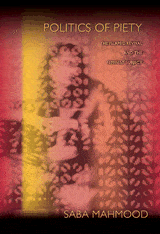
Politics of Piety: the Islamic Revival and the Feminist Subject. Saba Mahmood. (Princeton University Press 2005)
Politics of Piety is a groundbreaking analysis of Islamist cultural politics through the ethnography of a thriving, grassroots women’s piety movement in the mosques of Cairo, Egypt. Unlike those organized Islamist activities that seek to seize or transform the state, this is a moral reform movement whose orthodox practices are commonly viewed as inconsequential to Egypt’s political landscape. Saba Mahmood’s compelling exposition of these practices challenges this assumption by showing how the ethical and the political are indelibly linked within the context of such movements.
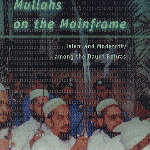 Mullahs on the Mainframe: Islam and Modernity Among the Daudi Bohras. Jonah Blank. (University of Chicago Press 2001)
Mullahs on the Mainframe: Islam and Modernity Among the Daudi Bohras. Jonah Blank. (University of Chicago Press 2001)
In Jonah Blank’s important, myth-shattering book, the West gets its first look at the Daudi Bohras, a unique Muslim denomination who have found the core of their religious beliefs largely compatible with modern ideology. Combining orthodox Muslim prayer, dress, and practice with secular education, relative gender equality, and Internet use, this community serves as a surprising reminder that the central values of “modernity” are hardly limited to the West.
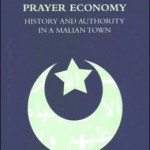 Islam and the Prayer Economy: History and Authority in a Malian Town. Benjamin Soares. (Edingburgh University press, 2005)
Islam and the Prayer Economy: History and Authority in a Malian Town. Benjamin Soares. (Edingburgh University press, 2005)
At a time when so-called fundamentalism has become the privileged analytical frame for understanding Muslim societies past and present, this study offers an alternative perspective on Islam. In an innovative combination of anthropology, history, and social theory, Benjamin Soares explores Islam and Muslim practice in an important Islamic religious centre in West Africa from the late nineteenth century to the present. Drawing on ethnography, archival research, and written sources, Soares provides a richly detailed discussion of Sufism, Islamic reform, and other contemporary ways of being Muslim in Mali and offers an original analytical perspective for understanding changes in the practice of Islam more generally.

